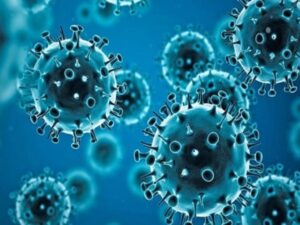Originating from a family of other viruses that causes respiratory diseases like Severe Acute Respiratory Syndrome (SARS) and Middle East Respiratory Syndrome (MERS). The novel coronavirus is new and is unfamiliar to our immune systems and there’s no vaccine for it yet.
Being a respiratory virus, it transmits through coughs or sneeze. Coronavirus can spread from person to another quite rapidly.
PERSON TO PERSON
In recent times, the world is a witness to the ‘person-to-person’ spread of coronavirus. It’s considered to be the main method of transmission, according to the Centers for Disease Control and Prevention (CDC).
It can spread if-
- the infected person is in close proximity (within 6 feet distance) of another person
- if the infected person coughs or sneezes without covering their mouth
- if the infected person has touched their nose or mouth and then shakes hand with someone, they can transfer the virus.
- if someone comes in contact with another person and touches their eyes, nose or mouth without washing hands, it can give the virus an entry point into the body.
SPREAD THE VIRUS WITHOUT BEING SICK
The reason for coronavirus mayhem is because, a person won’t know if he has contracted the virus, and can be asymptomatic for approximately five days and can still spread the virus.
HOW FAST THE VIRUS SPREADS?
The virus has been spreading easily in the community (community spread) in some affected geographical areas.
Community spread means that people have been infected with the virus in an area that includes people who are unaware of how or where they were infected.
According to an Indian Council of Medical Research (ICMR) researcher, the introduction of community transmission of COVID-19 cases may take anywhere between a minimum of three weeks to a few months to be visible.
This is one of the most important reasons why the PM has been demanding a home quarantining and Janta Curfew, so as we can limit the community spread, not overwhelm the hospitals and at the same time not put the elderly in any danger.
SPREAD FROM SURFACES
We all know that our bathrooms and toilets are the most germ-infested place in the house. Even without the potential threat of coronavirus dangling like a sword on our neck, we were taught to wash our hands after leaving the bathroom.
Since, in case of coronavirus a person may or may not know if s/he has contracted it, it’s safe to wash your hands and sanitize it with an alcohol-based solution.
The counters of the kitchen, doorknobs, elevator buttons, refrigerator handles, staircase handles, etc. Experts aren’t sure for how long the virus stays on the surface, but if it behaves like other viruses, then its survival range could be from several hours to several days. The type of surface, humidity, room temperature, and environment are also contributing factors for its survival. But the best precaution at this point is to disinfect and sanitize the things you touch and your hands as frequently as possible.
IF YOU PROTECT YOURSELF, YOU PROTECT OTHERS TOO
- MAINTAIN ENOUGH DISTANCE if you are out in the public from anyone who seems sick and is coughing or sneezing.
- WASH YOUR HANDS thoroughly with soap and water and sanitize with an alcohol-based solution.
- DO NOT TOUCH your eyes, nose or mouth.
- AVOID going to public places.
- STAY AT HOME and isolate yourself in case you develop similar symptoms. Call for medical assistance immediately instead of shrugging it off.
- DO NOT take this matter lightly as your health can be affected because of someone and vice-versa.
- BE SMART and don’t spread rumors or fake news on any social media. Since there’s a lockdown, you would have ample time to verify the authenticity of a message.









